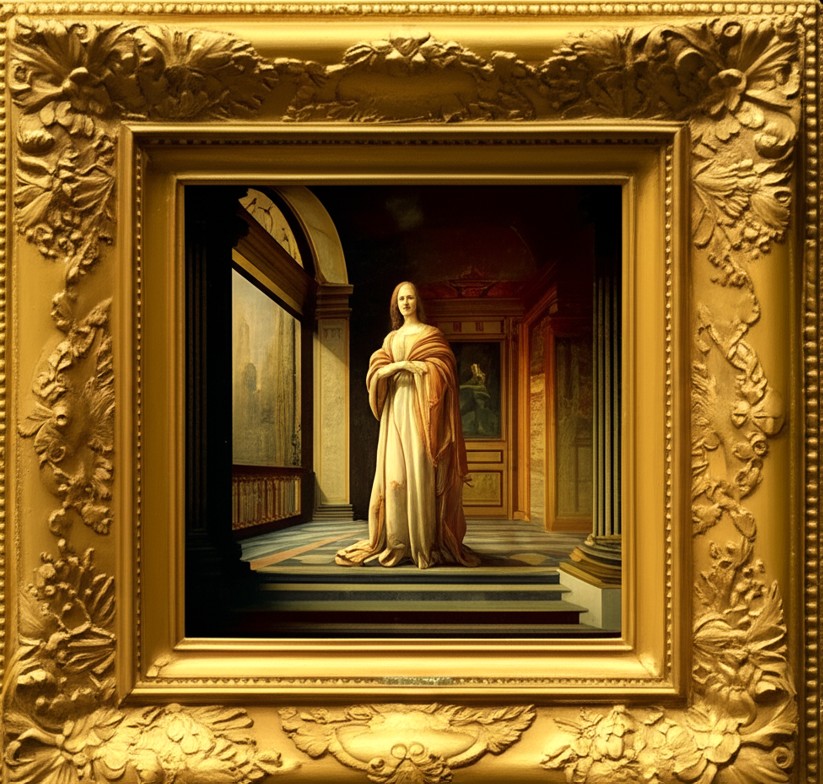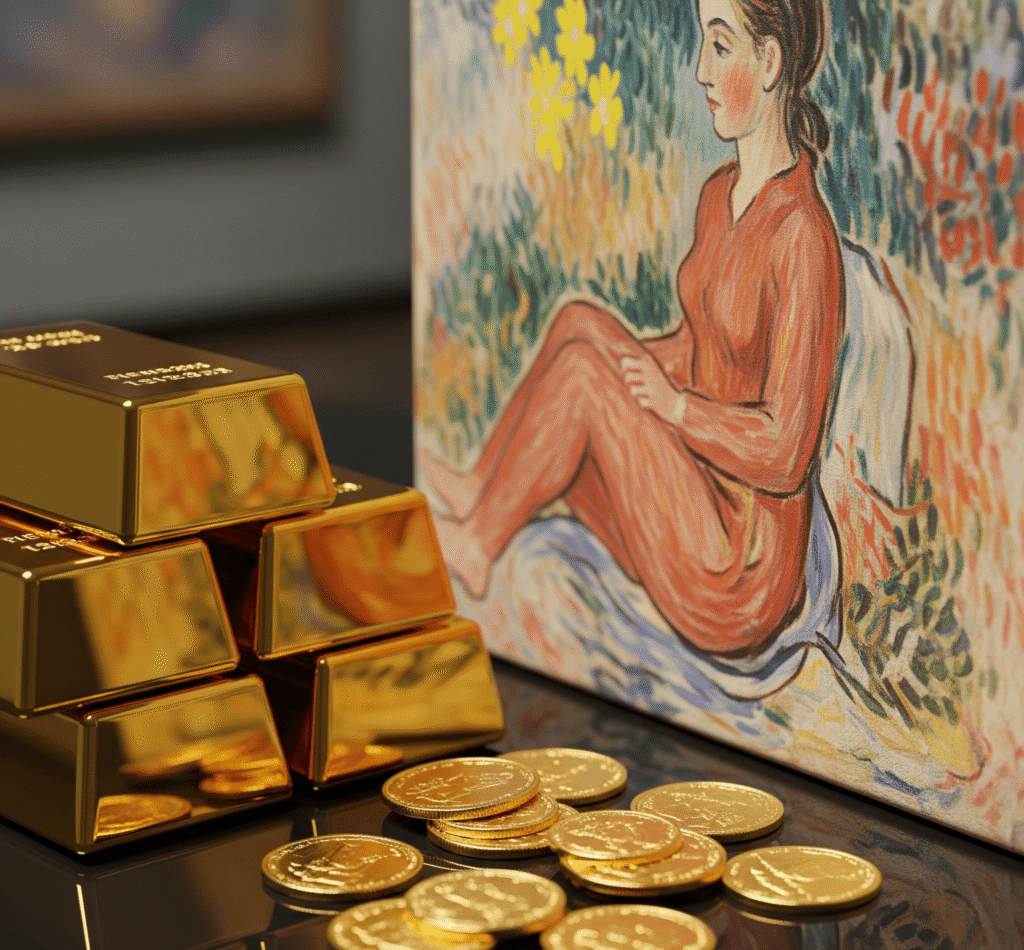The Psychology of Art Collectors: Why the Rich Invest in Paintings
Introduction
In the glittering world of luxury and wealth, few investments combine emotional satisfaction, cultural prestige, and financial potential like art. The psychology of art collectors—particularly the ultra-wealthy—goes far beyond aesthetics. Art is not just about beauty or history; it’s about identity, influence, legacy, and even power. In this blog post, we delve deep into why the rich invest in paintings, unpacking the emotional, psychological, and financial motivations behind one of the world’s most prestigious markets.
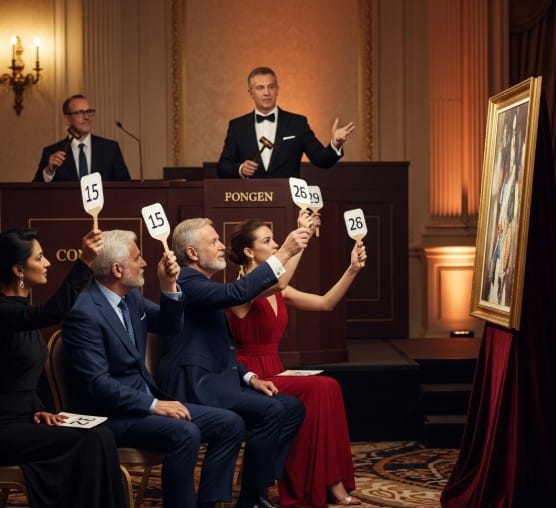
The Emotional Connection: Art as a Mirror of the Self
One of the most compelling reasons collectors invest in art is emotional resonance. For many, a painting speaks to personal memories, values, or aspirations. According to psychologists, the act of collecting can fulfill a deep emotional need—be it for control, beauty, or meaning (source).
Art allows wealthy collectors to externalize their internal world. It becomes an extension of their personality and status. The themes, styles, and even artists they choose often reflect how they view themselves—or how they wish to be seen.
Status Symbol and Social Currency
In elite circles, collecting art is as much about symbolic capital as it is about financial investment. Owning a rare Picasso or a contemporary piece by Banksy sends a strong message of taste, intelligence, and cultural engagement.
High-value paintings are also often showcased at events or in luxury homes, functioning as conversation starters and subtle indicators of the owner’s access to exclusive cultural circles.
Financial Investment: Art as an Asset Class
The wealthy are increasingly treating art as an alternative investment. In fact, some financial advisors recommend allocating a portion of one’s portfolio to blue-chip artworks. The global art market has proven resilient, often outperforming traditional assets during economic downturns.
According to Deloitte’s 2023 Art & Finance Report, 72% of collectors consider investment returns when purchasing art. Paintings by renowned artists like Tyeb Mehta, S.H. Raza, and even emerging names can appreciate dramatically over time.
Investing in art offers the dual benefit of aesthetic enjoyment and capital growth—a combination rarely found in traditional asset classes.
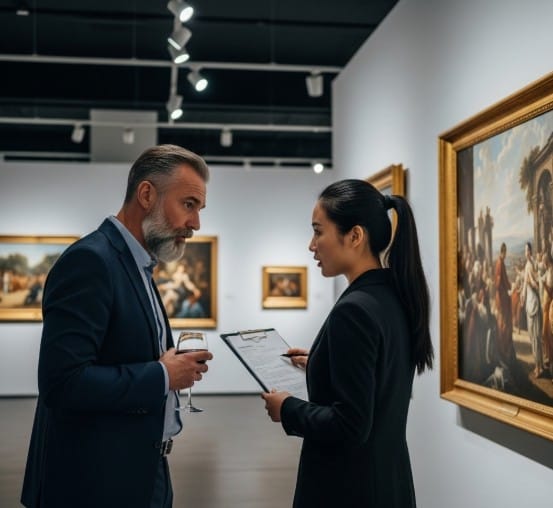
Psychological Drivers: Control, Legacy, and Immortality
The psychology of art collectors is often driven by more than money. Here are a few deep psychological motivations:
1. Control
Collecting gives individuals a sense of control over their environment and narrative. Selecting and curating art enables them to shape a visual legacy.
2. Legacy
Wealthy collectors often donate works to museums or create private galleries, seeking to immortalize their names through art. The collection becomes a cultural footprint, signaling both success and altruism.
3. Immortality and Identity
Art is permanent. By associating their identity with timeless works, collectors gain a sense of enduring relevance—one that may outlive them.
Art and Tax Benefits
For the ultra-wealthy, strategic art acquisitions can offer tax advantages. Through tools like charitable donations, art lending, and trusts, collectors can:
- Offset capital gains
- Defer estate taxes
- Increase philanthropic leverage
This makes art not just emotionally and culturally satisfying, but also fiscally intelligent.

The Role of Art Advisors and Galleries
Many collectors work with art advisors, galleries, and curators to build thoughtful collections. These professionals help clients:
- Navigate the market
- Verify authenticity
- Understand provenance
- Identify emerging trends
This structured approach transforms collecting from a hobby into a strategic practice—further reinforcing the psychology of control and mastery.
Cultural Influence and Soft Power
Art collecting also functions as a form of soft power. Donating to major museums, hosting exhibitions, or even just being associated with prestigious artworks helps the wealthy shape cultural narratives and establish global influence.
It’s no coincidence that political leaders, royalty, and industrialists are often prolific collectors. The art they endorse often reflects and shapes cultural values for generations.
Emotional Therapy and Personal Fulfillment
Collecting art also has therapeutic effects. It can provide a sense of purpose, reduce stress, and spark joy. For many collectors, visiting studios, attending auctions, or simply living with art brings daily emotional enrichment.
In this way, art becomes a personal sanctuary, especially in high-stress, high-stakes lifestyles.
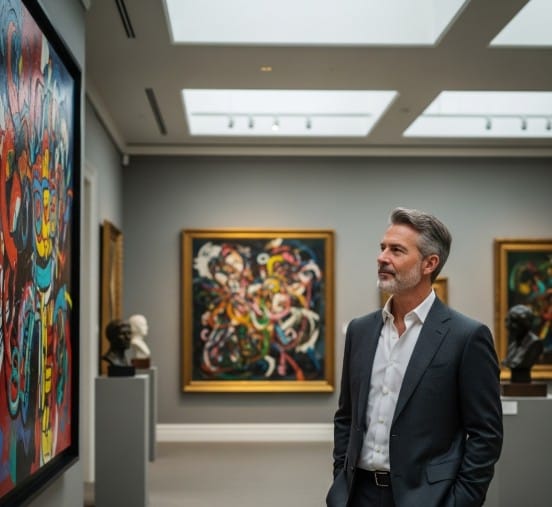
Risks and Emotional Attachments
Despite the many benefits, art collecting is not without risk. Emotional attachment can lead to overpaying or holding on to depreciating works. Market volatility, forgeries, and changing tastes can also affect value.
This blend of risk and reward, however, adds to the thrill—another key component of collector psychology.
Case Studies: Indian Collectors and the Global Stage
Prominent Indian collectors like the Kiran Nadar Museum of Art or Abhishek Poddar’s Museum of Art & Photography (MAP) demonstrate how collecting is evolving into institutional legacy-building. These collectors are not just preserving art; they are shaping India’s cultural identity on a global platform.
For emerging Indian artists, platforms like ISKUSS provide a global stage to connect with collectors who value both artistic excellence and cultural depth.
Conclusion: More Than Just Money
Understanding the psychology of art collectors reveals that for the wealthy, paintings are not merely objects—they are emotional, social, and financial statements. They reflect who collectors are, what they value, and how they wish to be remembered.
As global interest in art collecting grows, so too does the need to appreciate its psychological nuances. Whether you’re a new collector or simply curious about the minds behind million-dollar art purchases, one thing is clear: investing in art is as much about feeling as it is about finance.
Explore Curated Art Collections at ISKUSS
